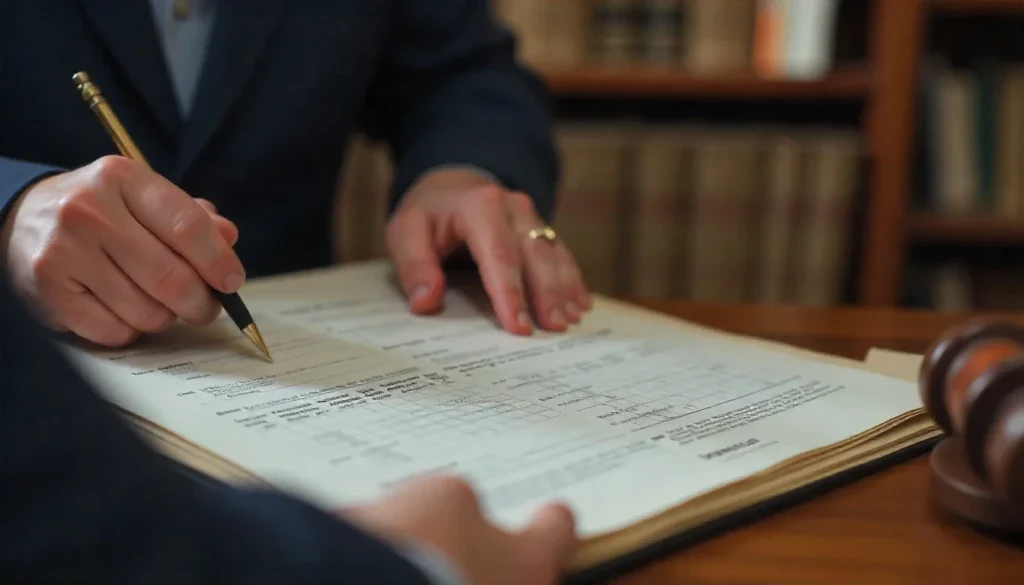Expert Insights from Lyon Legal Services – Northern NSW
Introduction: The Truth About Mediation and Legal Power
Many Australians are choosing mediation to resolve disputes without going to court. It’s private, cost-effective, and far less stressful than litigation. But one crucial question remains:
Is mediation legally binding in Australia?
The short answer is: it can be, but only under certain legal conditions.
Whether you’re dealing with a family separation, an estate dispute, or a workplace disagreement, understanding the enforceability of your mediation outcome is vital.
In this article, our legal experts at Lyon Legal Services, based in Northern NSW, break down exactly how mediation works in Australia, when it’s legally enforceable, and how to protect your rights through this process.
Need help now? Explore our Mediation Services for Northern NSW clients.
Book a Free Mediation Strategy Session
Is Mediation Legally Binding in Australia?
✅ Short Answer: Yes—but only if it’s formalised correctly.
Mediation by itself does not automatically create a legally binding outcome. However, there are clear pathways that can turn a mediation agreement into a legally enforceable contract or court-recognised order.
Let’s break this down:
Key Conditions for Legal Enforceability:
-
The agreement must be in writing.
Verbal agreements or handshake deals reached in mediation are not enforceable in court. -
It must be signed by both parties.
This usually takes the form of a Terms of Settlement or Heads of Agreement document. -
In family law matters, the agreement must be lodged as a Consent Order with the Federal Circuit and Family Court of Australia to be enforceable under law.
-
Workplace or civil mediation agreements are generally treated as binding contracts, enforceable through standard contract law.
⚠️ Informal agreements reached without legal advice, especially in family matters, may lack enforceability or expose parties to future risk.
Want legal backing for your agreement? View our Family Law Services for guidance on Consent Orders and property settlements.
Book a Free Mediation Strategy Session
Types of Mediation Agreements & Their Legal Weight
Mediation is used in a variety of settings. Here’s how legal enforceability differs across common types of mediation in Australia:

A. Family Law Mediation
In family law matters, mediation is often required before parties can take their case to court.
✅ Parenting Agreements
-
Agreements from Family Dispute Resolution (FDR) are not legally binding unless made into Consent Orders.
-
Parenting Plans, even when signed, are not enforceable unless filed with the court.
✅ Financial Agreements & Property Settlements
-
These can become legally binding if:
-
Compliant with the Family Law Act 1975
-
Signed with independent legal advice
-
Lodged as Consent Orders or Binding Financial Agreements (BFA)
-
Tip: Without legal formalisation, parties risk future disputes—even if the agreement was reached in good faith.
B. Workplace or Commercial Mediation
In employment, business, or commercial disputes:
-
Written agreements reached during mediation are treated as contracts.
-
If a party breaches the agreement, the other party can take legal action under contract law.
Example: A small business partner in Byron Bay signs a mediation agreement to exit the partnership. If they later refuse to hand over assets, the agreement can be used as a contract to enforce compliance.
C. Free Mediation in NSW
Free or subsidised mediation (e.g., Legal Aid, Community Justice Centres) is still subject to the same legal rules:
-
Agreements can be binding if properly drafted and signed.
-
For family matters, a Section 60I certificate is often issued if mediation fails, enabling court action.
Book a Free Mediation Strategy Session
When Can a Mediation Agreement Be Overturned?
Even signed agreements can be challenged or overturned under certain conditions.
⚠️ Grounds for Invalidity:
-
Duress or coercion during mediation
-
Fraudulent misrepresentation
-
Unconscionable conduct
-
Non-disclosure of key financial information (especially in family property matters)
These issues fall under equity principles and may render an agreement void or voidable.
⏳ Statutory Time Limits
For family law:
-
Consent Orders must usually be filed within 12 months of divorce or 2 years of de facto separation.
-
Delays beyond this may require special court permission.
Book a Free Mediation Strategy Session
What If One Party Breaks the Agreement?
Step-by-Step Enforcement Options:
-
Attempt Further Mediation
Sometimes parties can reopen mediation to clarify terms or resolve new disputes. -
File for a Court Order
-
If you have a Consent Order or BFA, it can be enforced through court.
-
In workplace cases, a breach of contract claim may apply.
-
-
Seek Legal Remedies
-
Courts can award damages, penalties, or compel action based on breach.
-
Real-World Example:
A parent in Lismore refused to pay agreed child support after mediation. Because the agreement was filed as a Consent Order, the court enforced compliance through garnishment.
Book a Free Mediation Strategy Session
Myths vs. Facts: Understanding Mediation Legality
Myth: Mediation is just a recommendation—courts don’t take it seriously.
✅ Fact: Courts often expect parties to attempt mediation first. Refusal without valid reason can hurt your case.
Myth: Mediators make legally binding decisions.
✅ Fact: Only judges or arbitrators can impose legally binding decisions. Mediators help parties reach voluntary outcomes.
Myth: A parenting plan signed in mediation is automatically enforceable.
✅ Fact: A parenting plan is not enforceable unless it is converted into a Consent Order.
How Lyon Legal Services Ensures Legally Binding Mediation
As your local legal team in Northern NSW, we don’t just offer mediation—we make sure it holds up legally.
⚖️ Our Legal Mediation Support Includes:
-
Accredited Family Dispute Resolution Practitioners (FDRP)
-
Drafting of legally compliant Terms of Settlement
-
Lodging Consent Orders with the Family Court
-
Converting outcomes into Binding Financial Agreements
Integrated Legal Support
We link mediation outcomes with broader legal support for long-term stability:
-
Parenting Coordination: Post-mediation support for high-conflict co-parenting
-
Estate Planning: Prevent future disputes through clear legal documentation
-
Family Law Services: Consent orders, divorce, and custody agreements
Book a Free Mediation Strategy Session
Final Thoughts: Protect Your Agreement the Right Way
Mediation is one of the most powerful legal tools for resolving disputes peacefully—but only if you protect its outcome through proper legal processes.
At Lyon Legal Services, we help you:
-
Avoid costly litigation
-
Build enforceable agreements
-
Preserve relationships
-
Move forward with confidence
Need a Legally Sound Mediation Outcome?
We’ve helped families, businesses, and individuals across Northern NSW resolve conflicts with dignity and legal security.
✅ Free Consultation
✅ Court-Recognised Agreements
✅ Local Mediators Who Understand Your Needs
Serving: Tweed Heads, Lismore, Ballina, Byron Bay, Grafton & Beyond
Call Now: (02) 6722 4898
Email: reception@lyonlegal.com.au
️ Book a Free Mediation Strategy Session


















